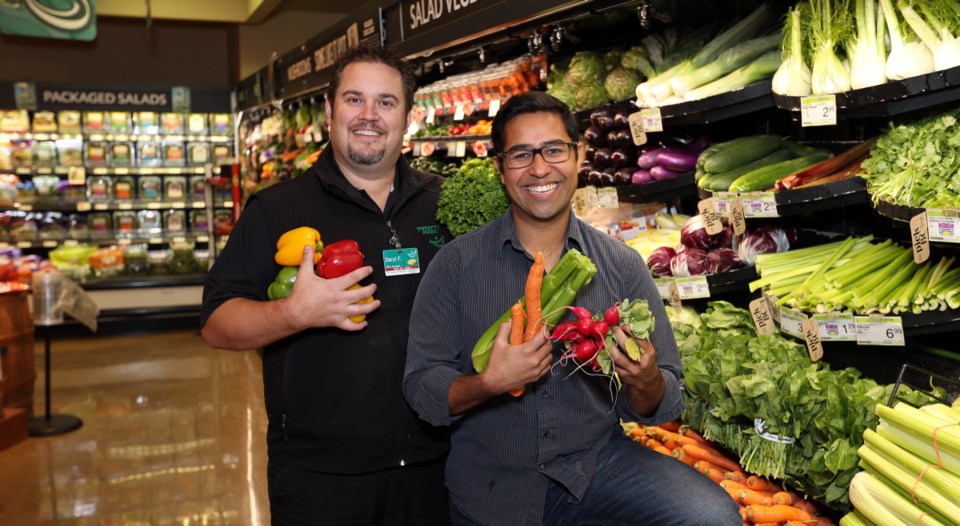Donations totalling $200,000 could buy 200,000 cans of baked beans for the Mustard Seed Food Bank. Nutritious, but short-term.
Or that money could change the way food banks operate long-term, enabling them to collect truckloads of fruits, vegetables and other perishable foods that go to waste, says Rudi Wallace, director of food security for the Mustard Seed.
A far-reaching “food rescue project” is under development, thanks to $100,000 raised by nine local Rotary clubs raffling a 2015 Nissan Rogue donated by Thrifty Foods. The Victoria Foundation provided a $100,000 matching grant.
It’s hard to give away food near its best-before dates, said Rotary spokeswoman Lorna Curtis. “It has to be safe and most organizations do not have refrigerated trucks [or] coolers.” A lot of food goes to waste, she said.
Wallace envisions a lasting solution involving a refrigerated truck or two and cold storage in a distribution hub, where foods approaching their best-before dates are examined and repacked for distribution to local non-profit agencies and perhaps low-income customers. It would also include sending damaged produce to farmers for their livestock.
The Victoria Foundation, which typically gives grants of about $15,000, is committing $100,000 to help underwrite a “food strategy road map” because so many people in the capital region do not know where their next meal is coming from, said foundation spokesman Rob Janus.
“You can’t begin to start collecting more wasted food — food that’s edible but not salable — until you have a proper infrastructure in place,” Janus said. “You need more space to handle it, you have to collect it, you have to refrigerate it, you have to distribute it.”
And it has to be done in a one-day turnaround, said Wallace, a resource person for the Food Share Network, a group of 29 non-profit food-distribution agencies in the capital region.
Already, Our Place staff pick up as many as 16 boxes of produce that would otherwise go to the landfill each day from the James Bay and Fairfield Thrifty stores, said Thrifty spokeswoman Vivian Chenard. In the chain’s nine other stores, there’s a lot more good food discarded that could be eaten, she said. “The problem is how to get it quickly to people who need it without it going bad.”
Already, Thrifty Foods gives 1.25 million pounds of food annually to the Mustard Seed, which also gets major contributions of groceries from Country Grocer, Fairway Markets and Save-On Foods, Wallace said.
“These grocery stores have amazing social consciences,” he said. But the Mustard Seed alone goes through 11,000 pounds of food every day.
Despite such massive donations, largely baked goods and non-perishables such as dented cans, nearly 15 per cent of capital region residents don’t always have enough to eat, Wallace said, quoting a 2013 Victoria Foundation report. Some people sacrifice food to pay their rent.
Meanwhile, food prices are increasing at twice the rate of inflation in part because of California’s prolonged drought, Wallace said.
The “food rescue project” is very do-able, Curtis said. “And we think that we can take it further in future years.”



